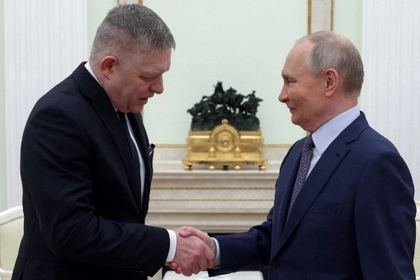Russian troops carried out one of the most massive drone attacks in Ukraine since the full-scale invasion early on Wednesday, July 31, with Kyiv being the main target, according to the Kyiv City Military Administration (KMVA) via Telegram.
“This was already the seventh attack on Kyiv by enemy drones in July! It became the most massive for the capital in 2024 in terms of the number of UAVs used,” the report read.
JOIN US ON TELEGRAM
Follow our coverage of the war on the @Kyivpost_official.
The air alert lasted more than seven hours. Russian drones entered Kyiv in waves and from nearly every possible direction.
Around 2 a.m., Kyiv Post correspondents heard loud explosions, followed by the sounds of probable anti-aircraft defense.
The KMVA reported that air defense in Kyiv and on the approaches to the city initially downed more than three dozen drones.
Later in the morning, at 6:33 a.m., another air alert was issued. The military administration said that during the second wave of the drone attack, Russian UAVs continued to approach Kyiv in waves from certain directions.
“But not a single drone reached its goal,” the report read.
“In total, during these two waves, more than four dozen enemy UAVs were shot down in the airspace over Kyiv and on the approaches to the capital,” the KMVA added.
The military administration revealed that under such a dense and massive air attack, the Ukrainian air defense forces and systems performed “just perfectly.”

Zelensky Accuses Slovak PM of Wanting to ‘Help Putin’
As of now, there are no reports of casualties or destruction in Kyiv.
The Kyiv City State Administration reported that during the massive attack on Kyiv, nearly 11,500 people took shelter in subway stations.
“Currently, the train schedule is gradually being restored, as the ground section suspends passenger transportation during the alarm,” the statement said.
Subway employees request understanding and assure that the trains will soon run according to the established schedules.
On the evening of July 30, the Air Force of the Ukrainian Armed Forces reported drones in the eastern Dnipropetrovsk region, several groups of drones in the northern Sumy and Chernihiv regions, and in the north of Kherson region.
The Poltava region was also warned about the threat of attack UAVs. Later, Shahed drones were recorded over the region.
The sounds of explosions were heard in Kyiv and Bila Tserkva, a city in the Kyiv region, 87 km from the Ukrainian capital.
Later, the Air Force reported on Telegram that Russia launched an early morning attack on Ukraine using a Kh-59 guided missile from the airspace of the partly occupied Kherson region and 89 Shahed-type strike UAVs from Russian Yeisk, Seshcha, Kursk, and Primorsko-Akhtarsk.
“The main direction of the attack was the Kyiv region,” the report said.
The Air Force disclosed that this was one of the largest Shahed drone attacks, comparable to the New Year's Eve attack on January 1, 2024.
“Just like then, Ukrainian air defenses successfully repelled the massive drone attack. All 89 Shahed-131/136 UAVs detected by radar units were shot down!” the message read.
The Kh-59 guided missile used against the Mykolaiv region was also intercepted.
The response involved mobile fire groups from all branches of the Ukrainian Defense Forces, tactical aviation, army aviation, anti-aircraft missile units, and Electronic Warfare units.
On July 8, Kyiv was struck by a Russian missile barrage that devastated a renowned children's hospital, prompting a wave of international condemnation. As of July 15, 33 people have been killed and 121 injured as a result of this missile attack.
You can also highlight the text and press Ctrl + Enter






